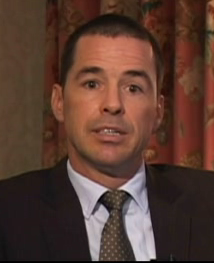Forcing Quebec’s Crown attorneys and government lawyers back to work with the promise of a six-per-cent raise over the next five years is about as far away from a winning formula as the Quebec government could get.
By pushing through back-to-work legislation in an overnight session earlier in the week, the Charest Liberals have not won any friends or, more importantly, done anything other than hurt the justice system.
The paltry raises promised the 1,500 striking lawyers, while in line with what other Quebec civil servants will be getting, is a far cry from what they were demanding: a hike of 40 per cent to bring them in line with the national average. Quebec prosecutors’ salaries range from $44,000 to $102,000, while in Ontario they go from $76,000 to $185,000. The back-to-work law also only provides for the hiring of 80 new prosecutors instead of the 200 requested.
It’s the second time in five years Crowns have been forced back to work. Five years ago the government refused binding arbitration and gave lawyers the right to strike instead.
But the aftermath of this two-week strike is pretty much all bad.
Most of the province’s chief prosecutors and assistant chief prosecutors who manage the justice system asked for reassignment to other duties in solidarity with their fellow lawyers.

Christian Leblanc, head of the association representing Quebec prosecutors, said the prosecution service will now have an even tougher time recruiting and retaining talent.
Despite the Quebec government’s bold announcement of a new anti-corruption unit last Friday, Crowns say they plan to boycott it by not applying for any of the prosecution jobs.
“Almost everyone has said in writing that they will not apply to those postings if they’re brought back to work with legislation,” Leblanc told reporters.
Moral is low, said Leblanc, but Crowns have returned to work and will continue to work with the limited resources they have despite being somewhat “ashamed to work for this government.” But, as he warned, “will the Crowns continue to prop up a legal system that’s deficient? One that’s propped up by their volunteering their personal time? I don’t think so.”
The only winners, it seems, are the criminals. Cases in point: 155 ongoing Hells Angels cases and a possible deluge of new fraud cases coming out of the investigation into the construction industry.
Claude Chartrand tendered his resignation as chief prosecutor for the Organized Crime Bureau this past weekend. He said he does not believe that provincial prosecutors have the manpower or backup staff necessary to combat criminal gangs and that the job should be left to federal prosecutors.
“Organized crime does not stop on the border between Quebec and Ontario. They go where the law is weak. They go where they can do whatever they want without the risk of being caught or prosecuted. Where do you think that place is in Canada right now?” asked Leblanc.
“It’s in Quebec and it is a shame.”

 Christian Leblanc, head of the association representing Quebec prosecutors, said the prosecution service will now have an even tougher time recruiting and retaining talent.
Christian Leblanc, head of the association representing Quebec prosecutors, said the prosecution service will now have an even tougher time recruiting and retaining talent.